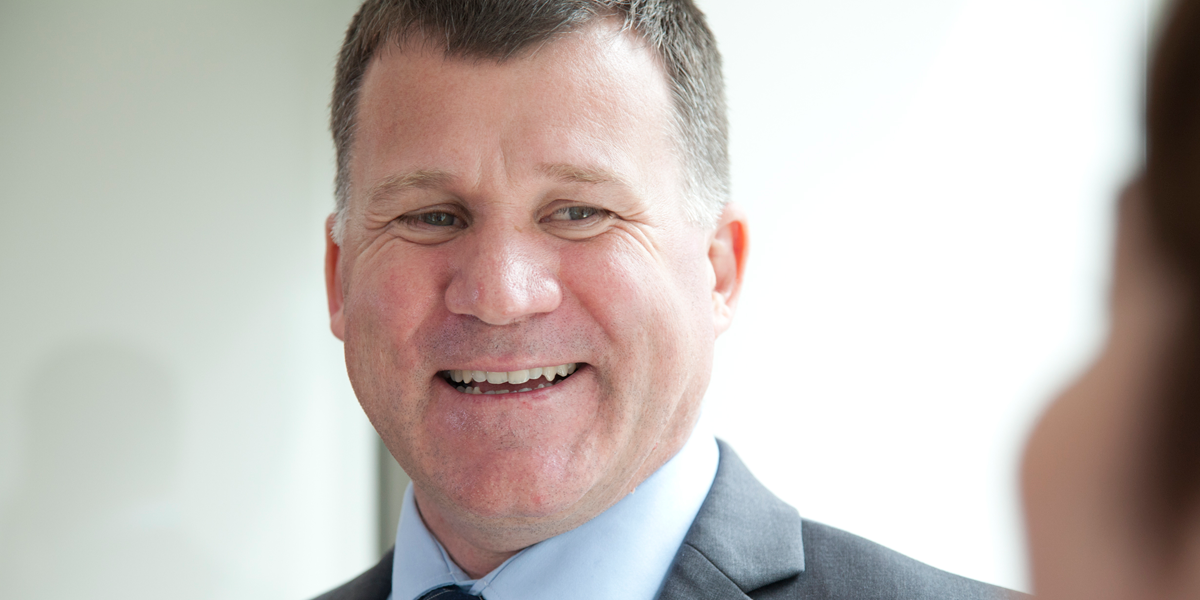Turning ideas into therapies
Ludwig translates it most promising basic research discoveries into products for the clinic.
The source of innovative cancer treatments is the laboratory but their proving ground is the clinic. Linking the two is Ludwig’s technology development team.
The team’s assignment—translating Ludwig’s most promising basic research discoveries into products fit for the clinic—is something few laboratory scientists, even those who have a translational focus, can complete on their own. Researchers often lack the resources and know-how to do that. The tasks required include preclinically evaluating potential drugs and testing them for safety; designing and managing clinical trials; and forging agreements with clinical research partners. “The majority of our work takes place behind the scenes,” says Jonathan Skipper, who heads the technology development team. “Most people don’t have any true sense of the extent of the work involved.”
Many researchers at Ludwig, including Alexander Rudensky and Jedd Wolchok of Ludwig MSK, have teamed up with the technology development group. In just one ongoing project with Ludwig MSK, the group is helping to test a new immunotherapy agent. It is an antibody that binds glucocorticoid-induced tumor necrosis factor receptor (GITR), a molecular target on key immune cells called regulatory T cells. Skipper’s team worked with the Ludwig MSK researchers to develop the clinical trial protocol and navigated paperwork to ensure the study’s compliance with the requirements of the US Food and Drug Administration and institutional review boards. It also established agreements with clinical trial sites at other institutions and with GITR Inc., the company supplying the investigational drug.
Only after all this was done could the team turn to the task of implementing and managing the conduct of the clinical trial. The trial, which is testing the GITR antibody in patients with many different types of cancer, is now underway, only months after the publication of the basic research study in mice that sparked the idea.
By shouldering all of these tasks, Skipper’s team enables the Ludwig MSK researchers to evaluate their research findings in the clinic.
Lining up drug company support can be a tough, lengthy process and Skipper’s team keeps the Ludwig MSK researchers nimble by helping them retain control over critical decisions, such as clinical trial design and correlative research studies. “The support gives us the ability to catalyze the translation of important laboratory findings into clinical trials,” Rudensky says.
To navigate the route from benchtop to bedside, Skipper has built a multidisciplinary team of experts with backgrounds in framing partnership contracts and agreements on intellectual property. The team also includes regulatory and clinical trials experts who understand how to design and run trials.
In addition, Skipper oversees the small molecule discovery group at Ludwig San Diego, led by Andy Shiau, which provides researchers with tools and compounds for studies that may eventually lead to the design and generation of new drugs suitable for clinical evaluation.
“Having all this provided by a nonprofit research organization like Ludwig is a major investment in translational cancer research and is pretty unusual,” says Skipper. “Many institutions encourage scientists to take discoveries to the clinic; few enable it like Ludwig Cancer Research.”
Web Cavenee, director of Ludwig San Diego, has also recently tapped Skipper’s team. Together, they are preparing for a clinical trial combining two antitumor agents. They are investigating whether they can use the experimental combined therapy to shrink glioblastoma multiforme, a deadly brain cancer—an outcome Cavenee’s team recently demonstrated in mice. “They have taken a big load off our shoulders,” Cavenee says of the technology development team.
